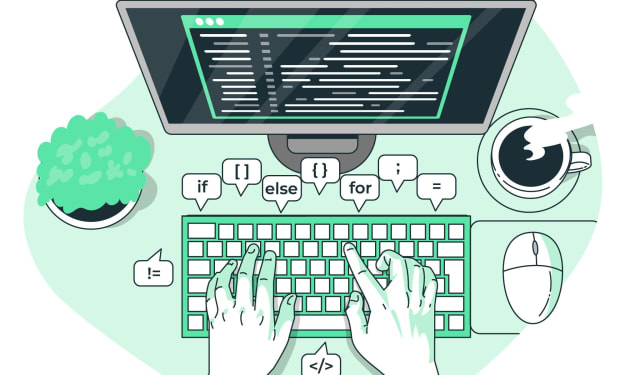7 Risks To Your Brain & Body of Prolonged Sitting
How does sitting for a long time can negatively affect your brain?

Sitting, a seemingly innocuous action that we engage in daily, has been increasingly linked to many health issues. From heart diseases to mental health disorders, the impact of excessive sitting on our well-being is more significant than we might have previously considered. This article delves into the alarming effects of sitting too much on brain health, shedding light on a crucial yet often overlooked aspect of our daily lives.
How Does An Inactive Lifestyle Affect Your Life?
A sedentary lifestyle is characterized by excessive inactivity or lack of physical exercise. It typically involves activities such as
- sitting,
- lying down,
- watching TV, or
- engaging in screen-based activities for prolonged periods.
Unfortunately, this lifestyle is becoming commonplace. This is due to the increasing automation of tasks, desk-bound jobs, and the rise of digital entertainment.
Staying glued to your seat might raise your risk of health problems as you age. This includes diabetes, heart disease, and even certain cancers. Even people who exercise regularly are not safe from these risks if they sit for a large part of their day. Here are seven ways in which sitting too much is affecting your health.
Increased Threat to Heart Health
One of the most alarming consequences of excessive sitting is its detrimental impact on heart health. Numerous studies have established a correlation between prolonged sitting and a heightened risk of heart disease. Even individuals who exercise regularly are not excluded from this risk. Break up long sitting sessions with periods of physical activity.
Shortened Lifespan
Excessive sitting has been linked to a shortened lifespan and heart disease. This finding implies that excessive time seated can lower your life expectancy irrespective of your exercise habits.
Mental Health Consequences
Prolonged sitting does not only harm your physical health, but it also is a significant threat to your mental wellbeing. Studies have found a higher risk of anxiety and depression among individuals who spend a large portion of their day seated. Lack of exercise and fitness might be contributing to this.
Linked to Diabetes
Another alarming consequence of prolonged sitting is its link to higher diabetes risk. A sedentary lifestyle can increase your risk of insulin resistance, which causes your blood sugars to rise above healthy levels. Consequently, people who spend more time sitting are at a higher risk of developing diabetes.
Catalyst for Dementia
Emerging studies suggest that excessive sitting could increase your chances of developing dementia. The precise reason behind this is yet to be discovered. However, the correlation between sedentary behavior and mental health deterioration is clear.
Varicose Veins and Deep Vein Thrombosis
Prolonged sitting could lead to varicose veins or spider veins. This results from blood pooling in your legs due to prolonged inactivity. In severe cases, this could lead to deep vein thrombosis (DVT). It is a condition where a blood clot forms in the veins of your leg. When you sit longer, blood flow to the legs and core decreases, potentially impacting blood pressure after eating. This can lead to fatigue and a lack of energy, hindering your ability to focus and complete tasks. Nootropics like Artvigil 150 and modafinil are great for boosting concentration and productivity.
Chronic Back Pain
Sitting for long periods, especially with bad posture, can cause chronic back pain. Sitting puts immense stress on your back muscles, neck, and spine. Over time, this can result in persistent postural misalignment and early muscle fatigue. Weight Gain Factor Sitting for long periods can make it harder to manage your weight. It has been linked to obesity and weight gain. This is particularly true for individuals who eat while distracted by a screen, as they tend to consume more significant portions.
How to Incorporate Movement into Your Daily Routine
Incorporating movement into daily routines is critical to counteracting the effects of a sedentary lifestyle. Simple changes, such as
- taking the stairs instead of the elevator,
- walking to nearby destinations,
- finding opportunities to stand and stretch during the day
Can significantly increase daily physical activity levels.
While exercise is great for health, it can't fully counteract the downsides of sitting all day. Aim for a balance of movement and activity to maximize health benefits. People can also use technology to incorporate more movement into daily routines. Various apps and wearables that track physical activity and remind users to move can be helpful tools.
How to Reduce the Negative Effects of Sitting
To counteract the harmful effects of prolonged sitting, it's crucial for you to incorporate regular physical activity into your routine. Even simple activities such as walking can significantly improve brain function. Adopting a well-rounded lifestyle and making positive changes can help reduce the risk to your brain health. These changes may include staying physically active, eating a brain-healthy diet, managing stress, getting adequate sleep, limiting alcohol, and avoiding substance abuse. Remember, you have the power to protect your brain health.
The Bottom Line
The evidence is clear: prolonged sitting can negatively affect your physical and mental health. While it's not always possible to avoid sitting, especially in work situations, breaking up sitting periods with standing or walking intervals is essential. This simple act can go a long way in maintaining overall health and, significantly, preserving brain function. Remember, a proactive approach to health can help keep your brain sharp and your body fit.
About the Creator
Enjoyed the story? Support the Creator.
Subscribe for free to receive all their stories in your feed. You could also pledge your support or give them a one-off tip, letting them know you appreciate their work.





Comments
There are no comments for this story
Be the first to respond and start the conversation.